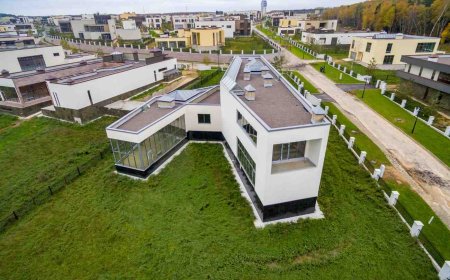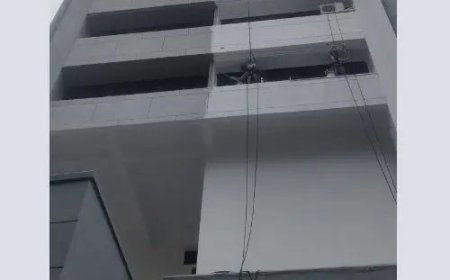Why Integrated Logistics Support Is the Backbone of Modern Operations

Key Takeaways
-
Integrated logistics support maximizes lifecycle efficiency and system readiness.
-
Robust integrated logistics services link procurement, training, supply chain, and maintenance.
-
A strategic obsolescence management plan reduces costly disruptions.
-
Proactive planning improves uptime, performance, and long-term savings.
-
Expert partners like IRIDIUM Integrated Logistics Solutions help deliver sustainable support frameworks.
Why Integrated Logistics Support Is Crucial in Todays Landscape
As operations become more complex and technology evolves rapidly, integrated logistics support is no longer optionalits essential. It creates a coordinated plan that ensures systems remain functional, reliable, and cost-effective over their entire lifespan.
Businesses that embrace integrated logistics support enjoy increased equipment availability, lower operational costs, and smoother transitions during system updates or replacements.
What Makes Up Integrated Logistics Support?
1. Lifecycle Maintenance Planning
-
Reduces unplanned downtime
-
Schedules servicing around operational needs
-
Extends system longevity
2. Seamless Supply Chain Integration
-
Prevents part shortages
-
Improves sourcing efficiency
-
Supports just-in-time delivery
3. Up-to-Date Technical Documentation
-
Reduces training time
-
Standardizes maintenance procedures
-
Enhances operational safety
4. Workforce Training and Support
-
Equips teams with essential skills
-
Reduces dependency on external support
-
Lowers human error risks
5. Asset Configuration Control
-
Maintains consistency across equipment
-
Tracks updates and retrofits
-
Prevents incompatibility issues
6. Facility and Tooling Readiness
-
Ensures appropriate tools and spaces are available
-
Increases operational efficiency
-
Supports evolving equipment needs
These components form the backbone of a comprehensive integrated logistics support strategy that aligns technical operations with long-term goals.
How Integrated Logistics Services Deliver Results
Integrated logistics services provide the structure to execute logistics support plans in real time. They connect departments and data into a cohesive process that improves reliability, responsiveness, and planning.
With integrated logistics services, businesses can:
-
Reduce turnaround times
-
Optimize inventory levels
-
Ensure regulatory compliance
-
Improve forecasting and operational continuity
Key Integrated Logistics Services
-
Spare parts sourcing and management
-
Repair and return logistics
-
Preventive and predictive maintenance support
-
Real-time asset tracking
-
Logistics data analytics
Using these services empowers teams to work more efficiently and make data-backed decisions that cut costs and increase performance.
Creating a Proactive Obsolescence Management Plan
Every system will eventually face parts becoming unavailable or outdated. A well-defined obsolescence management plan is critical for avoiding extended downtime and emergency procurement.
Why Obsolescence Planning Matters
-
Identifies critical components at risk
-
Enables advance budgeting and sourcing
-
Maintains continuity during transitions
-
Reduces last-minute fixes that increase costs
Steps to Build Your Plan
-
List essential and aging components
-
Monitor supply chain changes and part lifecycle
-
Source and validate alternate options early
-
Plan updates into the maintenance schedule
-
Integrate with your integrated logistics services provider for execution
With a forward-thinking obsolescence management plan, you can ensure long-term system availability and cost stability.
Who Needs Integrated Logistics Support?
Defense and Security
Defense systems rely on integrated logistics support to stay combat-ready and mission-capable under extreme conditions.
Heavy Industry and Manufacturing
To maintain production uptime and reduce wear-and-tear, industrial facilities depend on lifecycle-based logistics strategies.
Utilities and Energy Providers
Maintaining complex grids and assets requires integrated logistics services to avoid shutdowns and keep critical systems operating.
Transport and Infrastructure
Transit agencies and logistics fleets count on proactive maintenance and parts availability to stay on schedule.
Innovative Trends in Integrated Logistics
AI and Predictive Maintenance
Smart tools can analyze usage patterns and sensor data to anticipate failures before they happen.
Cloud-Based Logistics Platforms
Real-time dashboards provide instant insight into inventory, service requests, and supply chain status.
Digital Twins
Virtual models of physical assets allow simulation, testing, and lifecycle planning without disrupting real-world systems.
Sustainable Logistics Practices
Circular systems for recycling, reusing, and repurposing reduce costs and environmental impact.
IRIDIUM Integrated Logistics Support in Practice
Industry-Leading Support Frameworks
IRIDIUM Integrated Logistics Solutions offers world-class integrated logistics support that helps businesses maximize reliability, minimize risk, and operate with greater agility.
Their service model includes planning, sourcing, documentation, training, and a proactive obsolescence management plan. This holistic approach makes them a go-to partner for organizations looking to future-proof their logistics operations.
Get Ready for Smarter Support Systems
Building your logistics roadmap? Heres how to begin:
-
Evaluate your current systems and gaps
-
Prioritize areas with frequent downtime
-
Build an integrated logistics support strategy
-
Partner with a reliable integrated logistics services provider
-
Implement your obsolescence management plan in phases
-
Track KPIs and adjust for continuous improvement
Proactive logistics planning gives your organization the edge to operate more efficiently and respond faster to change.
Why Integrated Support is a Smart Investment
-
Reduces lifecycle ownership costs
-
Increases operational readiness
-
Lowers risks of downtime or service failures
-
Enhances team skills and autonomy
-
Future-proofs logistics against global disruptions
Conclusion
In a world where uptime and efficiency are vital, integrated logistics support empowers businesses to stay ahead. With expert integrated logistics services and a smart obsolescence management plan, you can avoid costly disruptions and maintain top-tier performance.
Whether you're operating in defense, manufacturing, or infrastructure, the right logistics framework transforms challenges into competitive advantages. Companies like IRIDIUM Integrated Logistics Solutions deliver the tools and expertise to bring this vision to life.
Frequently Asked Questions
1. What is integrated logistics support?
Its a full lifecycle strategy that includes maintenance, training, supply chain coordination, and support planning to keep systems mission-ready.
2. How do integrated logistics services improve operations?
They ensure efficient resource use, reduce downtime, and keep systems in peak condition through real-time execution and support.
3. What makes an obsolescence management plan effective?
It identifies at-risk parts, prepares alternatives, and integrates planning into broader logistics operations to avoid last-minute disruptions.
4. Which industries benefit most from integrated logistics?
Sectors like defense, utilities, aerospace, transport, and heavy industry all rely on reliable, long-term logistics planning.
5. How do I start implementing integrated logistics support?
Begin by auditing your existing system, identifying key vulnerabilities, and partnering with a logistics provider to develop a phased implementation strategy.







































